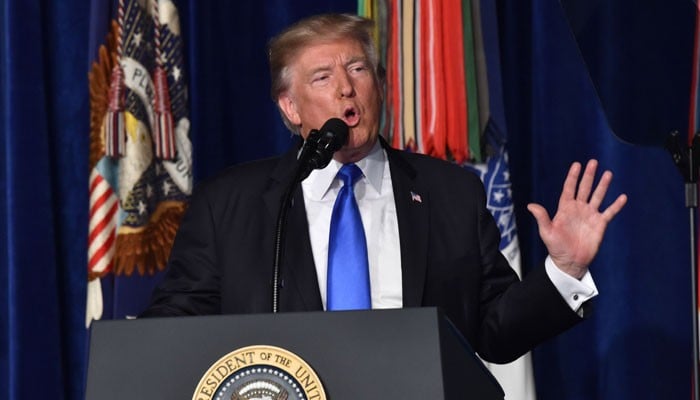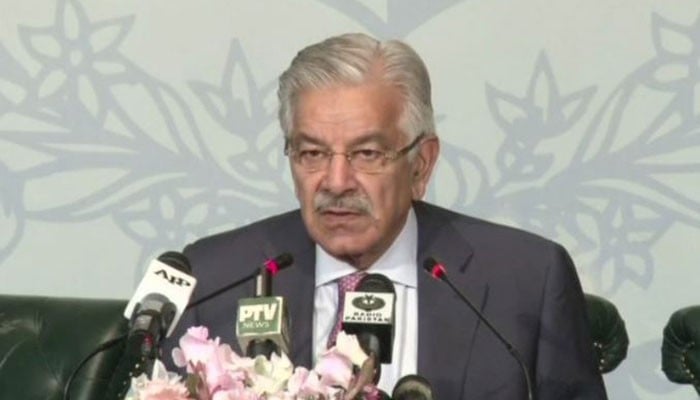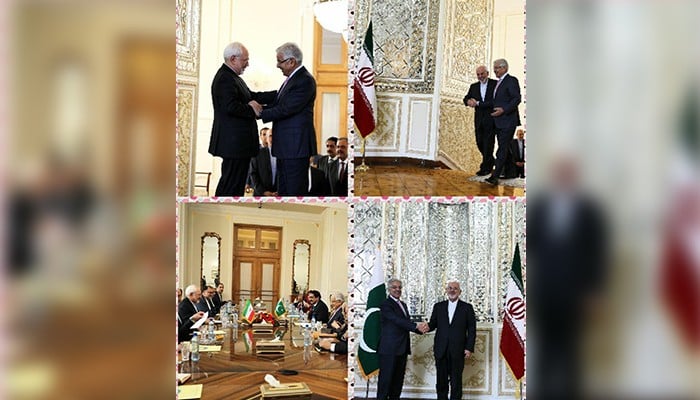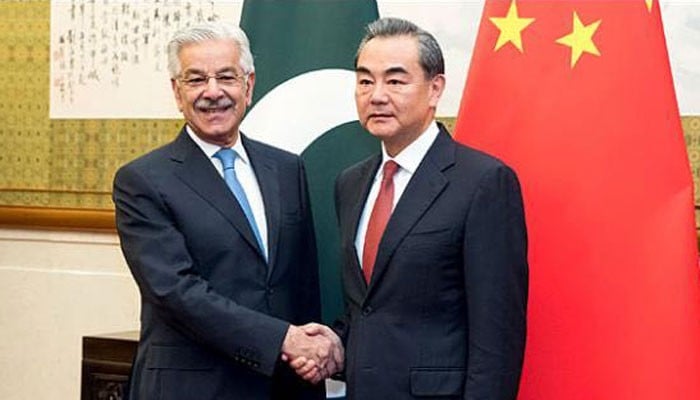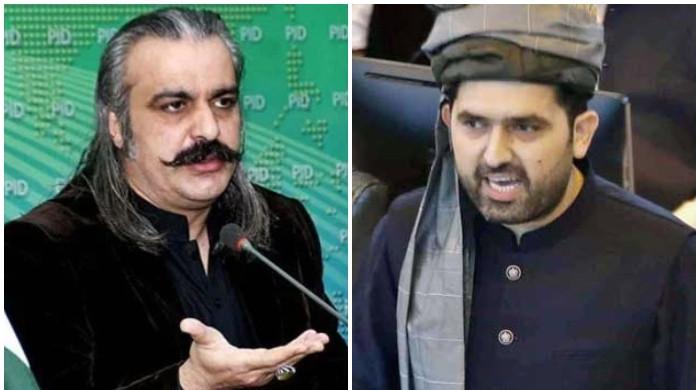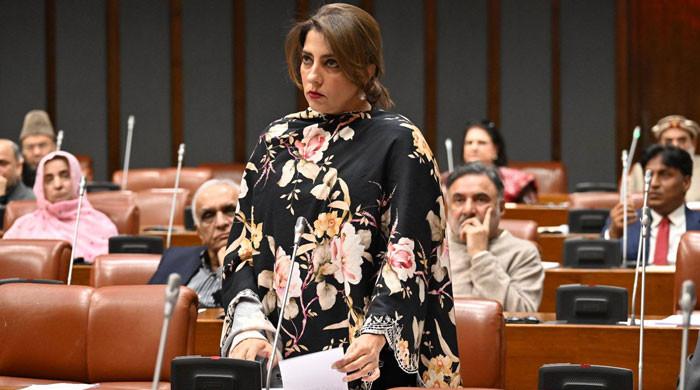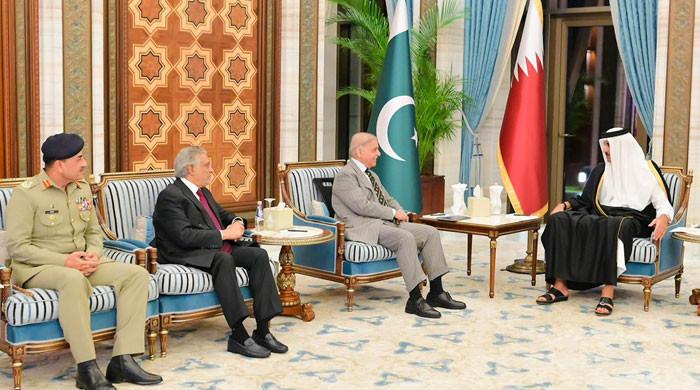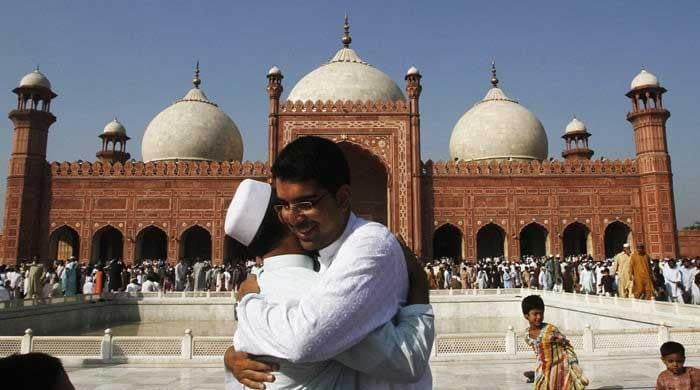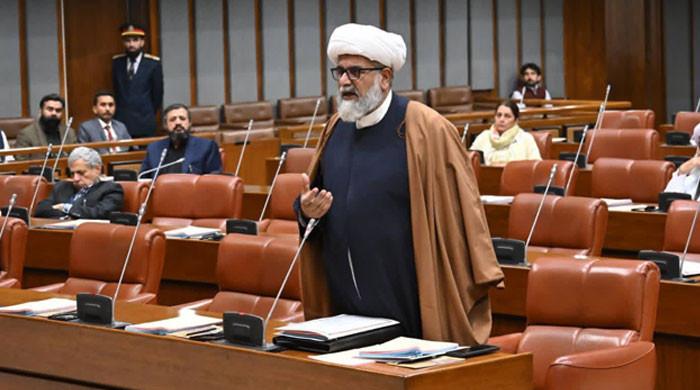Asif discusses regional situation, bilateral ties with Turkish leadership
Pakistan decided to approach regional countries after Trump announced his controversial new policy for South Asia
September 12, 2017
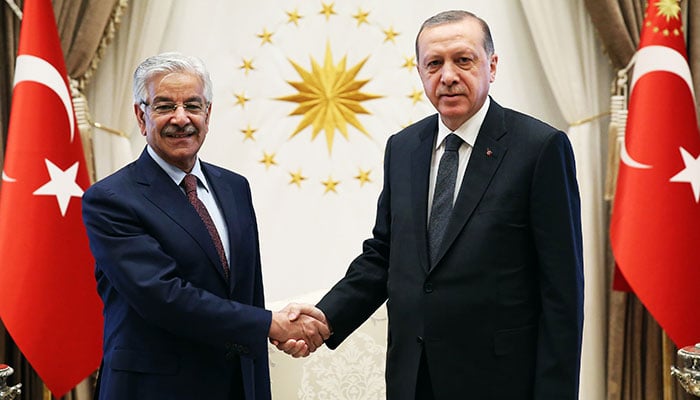
ANKARA: Foreign Minister Khawaja Asif called on Turkish President Recep Tayyip Erdogan and Prime Minister Binali Yildirim in Ankara on Tuesday, where he discussed the regional situation and bilateral relations.
The minister, who arrived in Ankara for a day's visit, was accompanied by National Security Adviser Lt Gen (retd) Nasser Janjua.
According to a spokesperson for the Foreign Office (FO), the two sides exchanged views on further strengthening bilateral ties and discussed affairs related to regional peace and security. Bolstering coordination also came under discussion at the meetings.
"Pakistan seeks strengthening of strategic, political, economic and defence relations with Turkey," the foreign minister said in meeting with President Erdogan.
The Turkish president responded by saying that Turkey also seeks to promote its relations with Pakistan.
The two countries agreed on high-level exchange of delegations, the FO spokesman added.
Both countries observed that durable peace in Afghanistan was essential for regional security, and agreed to continue their efforts for this purpose.
In his meeting with Asif, the Turkish Foreign Minister Mevlut Cavusoglu said that a military solution to the Afghan issue was not possible.
The two countries also expressed grave concerns on the ongoing atrocities and violations of human rights in Myanmar and Indian occupied Kashmir (IoK).
They called on the world fraternity to take measures to stop atrocities in Myanmar against the minority Rohingya Muslims.
Moreover, Asif thanked the Turkish leadership for taking a principle stance on IoK.
On Monday, the minister spent his day in Tehran meeting his counterpart as well as Iran President Hassan Rouhani.
The two countries concluded that regional nations need to play their role to resolve the Afghan conflict.
Pakistan decided to approach regional countries after US President Donald Trump announced his controversial new policy for South Asia, which included 'anti-Pakistan' remarks.
Since then, Pakistan has gone into a diplomatic offensive, engaging regional countries that share its point of view with regards to Afghanistan.
On Thursday last, Asif stressed that the United States (US) should respect Pakistan's territorial integrity.
He made the remarks at a news conference following the conclusion of a three-day envoys conference and spoke on Pakistan's foreign policy, focusing on Pak-US relations.
"We want to stay engaged with the United States. We have had a long relationship with them, spanning 70 years,” he said but lamented that people in Washington do not have a full comprehension of the facts.
The present situation in the region and the world as a whole is changing rapidly, he said, adding that we have not seen such major geopolitcal changes since the Second World War.
He said a new paradigm, keeping in view our internal and external situation, will be formed. The prime minister has also advised it and it will be presented in both Houses of Parliament for review, he added.
